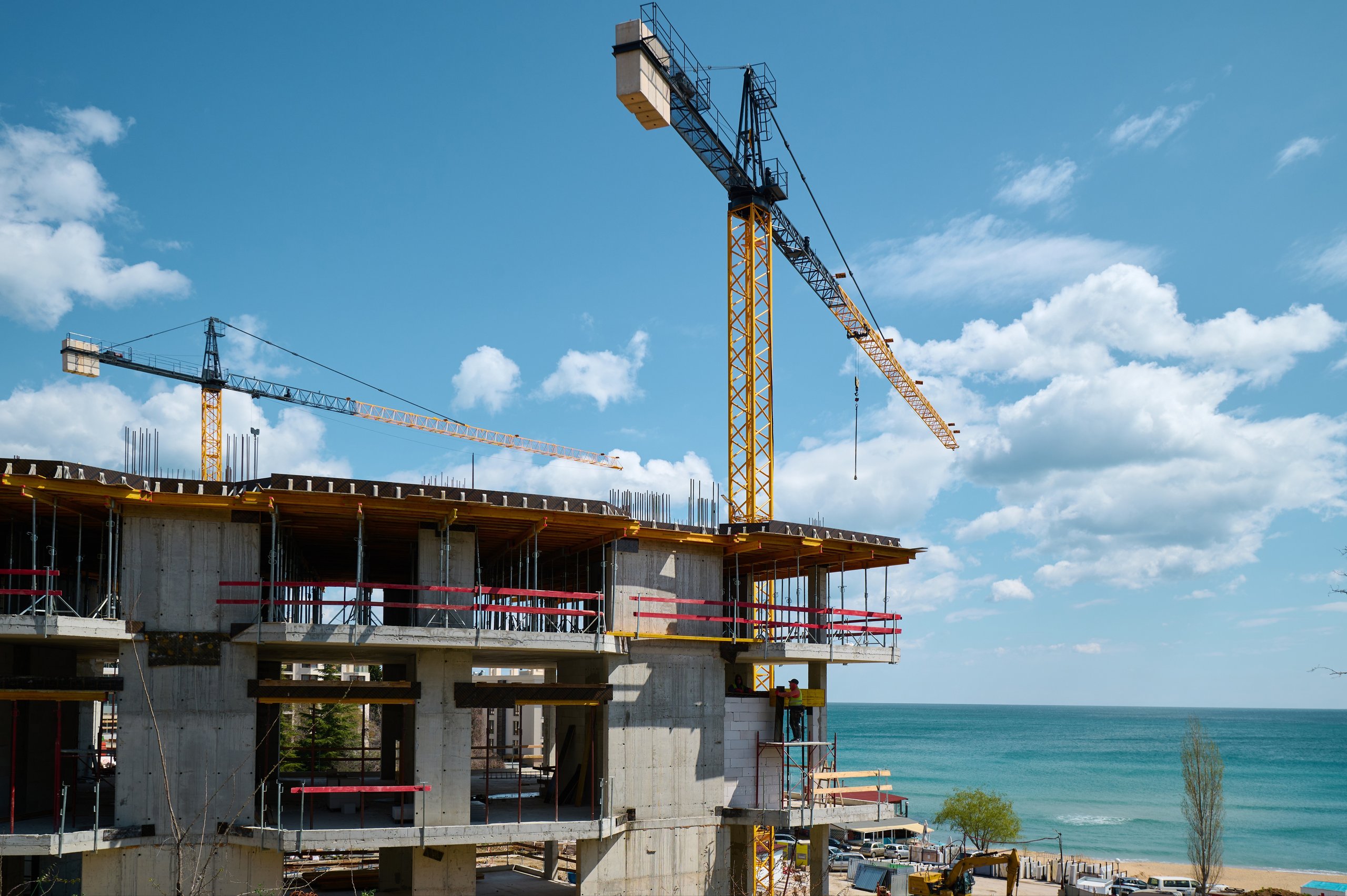Most people think ski resorts shut down when the snow melts. The lifts stop, the crowds disappear and the lights go out until next winter. But that’s not the full picture. If you own a home in the mountains, what’s left behind isn’t emptiness – it’s peace, space and a better way of life.
Buying a ski property isn’t just about winter holidays. The quieter months matter just as much. They can change how you see your home, and what you get from it.
We’ve written about dual seasonality before, and the importance of looking for a ski property that can be used outside of the winter months, but it’s stime to look at what an off-season home offers you.
Contents
- What actually happens in off-season?
- Spring and autumn aren’t empty
- Who lives in ski resorts year-round?
- Are shops and services open?
- Why this matters if you’re buying
- What are people doing in summer?
- So, what’s the catch?
- Don’t stop at snow

What actually happens in off-season?
The short answer: not much – and that’s the point. When the slopes close, locals get their towns back. Roads are quieter. You can get a table in your favourite restaurant without booking. There’s no queue for the bakery. It’s not dead – just calm.
In places like Morzine and Samoëns, life doesn’t stop when the snow goes. Families live here. Children go to school. People work year-round. If you’re used to visiting only in winter, you’ll be surprised how normal things feel when the tourists leave.
Population data from INSEE shows mountain towns in France’s Haute-Savoie are growing. That only happens when people stick around all year – and they do.
Spring and autumn aren’t empty
These months get called “shoulder seasons”, but that just means they’re not full of tourists. If you live here, that’s a good thing.
Spring is about walking through quiet valleys, seeing the last of the snow melt and spotting wildflowers before summer heat arrives. Autumn is even better. The forests turn red and gold. There’s a sharpness in the air, but it’s not cold yet. You can walk, cycle or sit on your terrace without seeing anyone else.
And towns don’t shut down. La Clusaz has markets every week through summer and autumn. Its cheese festival in August – the Fête du Reblochon – is packed with locals and returning homeowners. In nearby villages, there are open-air concerts, street performers and food stalls well into September.
Who lives in ski resorts year-round?
Not just chalet owners and ski instructors. More people are choosing to live in mountain towns full time – working remotely, retiring early or moving for a better quality of life.
Working from the mountains is easier than ever. Resorts like Chamonix and Megève (which is also famed for its dining) have fast internet, regular public transport and enough infrastructure to support people who live there properly. You don’t need to pick between your career and your sanity.
Eurostat reports a sharp increase in remote working across Europe, with many people relocating to rural areas. That includes ski towns, which are no longer just seasonal hubs. If you’ve ever thought of working from your second home, you’re not alone.

Are shops and services open?
Yes, in most decent resorts they are. Not every fondue restaurant stays open all year, but that’s fine – you’ll find others that do. The essentials are always available: supermarkets, pharmacies, GPs, bakeries, banks. In more developed towns, you’ll also find hardware shops, cafés and local schools.
The Léman Express train runs year-round and links ski towns like Cluses and St Gervais to Geneva. That kind of access is a big reason why more people are staying put, and why property values in places like the Northern Alps keep rising.
Why this matters if you’re buying
A mountain home that works in every season gives you options. You’re not tied to half the year. You can visit whenever you want – and if you don’t, you can rent it out.
Homes in year-round resorts tend to hold their value. Prices of prime properties in the Alps went up by 33% since 2008, according to Knight Frank. Why? Because people want more than a place to ski. They want somewhere to live, work or relax whenever it suits them.
You’ll also get more rental demand. Even in summer, people want fresh air, walking trails, bike parks and peace. If your property is well-located and well-equipped, it doesn’t need snow to pay its way.
What are people doing in summer?
Everything. In Chamonix, it’s all about hiking, climbing and glacier treks. In Morzine, mountain bikers take over the lifts and trails. Telluride hosts film festivals. Whistler runs the world’s biggest mountain biking event. Annecy is packed with paddleboards and outdoor concerts.
And if you don’t care for action sports? That’s fine too. Sit in the sun with a book. Take your morning coffee on the balcony. Go for a walk and not see anyone for an hour. These towns aren’t just about adrenaline – they’re about headspace.
A 2015 study by McMahan and Estes showed that people who live near mountains report higher life satisfaction and lower stress. There’s science behind the feeling that things are just better up there.

So, what’s the catch?
There isn’t one, as long as you buy smart. Some resorts do go quiet, and some properties aren’t built for hot summers. You need to look for a place that has infrastructure, ventilation and enough space to enjoy every season.
Think about what you’d want in July as well as January. Balconies, good airflow and enough storage for gear – both ski and summer – make a difference.
And remember: owning a home in the mountains is about more than views. It’s about use. If you’re going to pay for a property, make sure you can enjoy it more than a few weeks a year.
Don’t stop at snow
It’s easy to fall in love with a ski resort when the snow is perfect and the pistes are full. But if you buy a home there, you’ll own it long after the season ends.
That’s the opportunity – to see what most people miss. The forests in October. The markets in May. The silence in April. If that sounds like a better way to spend your time, then maybe a ski property isn’t just a holiday home. Maybe it’s your next life decision.
To find out where my suit your lifestyle, book a call with one of our consultants today:









